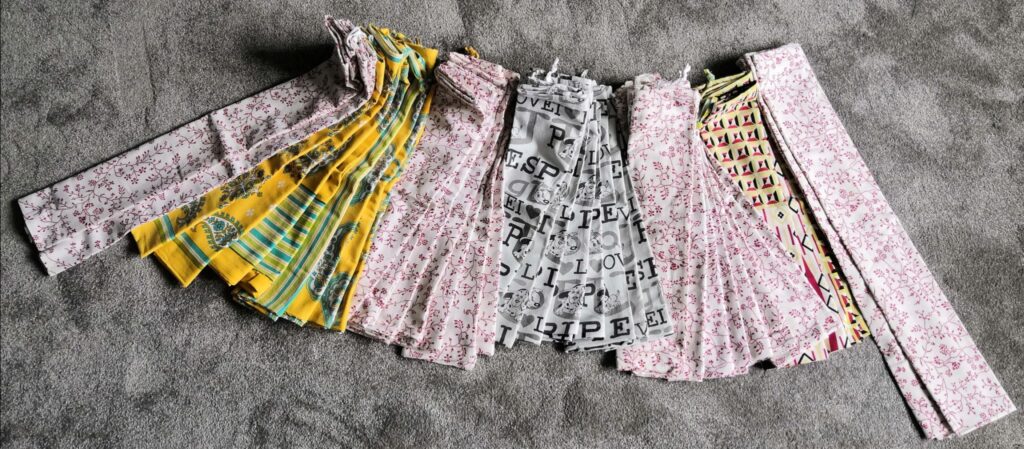In recent weeks it has become increasingly apparent that NHS workers are facing shortages in equipment, whether it’s face shields – such as those being produced by the Design Department – hats or overalls. Seeing that individuals on the frontline have already had to take a financial hit for their safety, volunteers across the country have begun the funding for and production of resources to be donated in order to lessen the strain. One of these national volunteer groups, For The Love Of Scrubs, was started by two NHS workers, dedicated to the creation and distribution of key equipment nationwide. Easily accessible by joining the Facebook group, the campaign has regional branches dedicated to protecting and aiding their communities.
As many of you may have seen on the school Twitter account, Dr Kulkarni has become very involved with this group in the past few weeks. Realising the shortage, upon recommendation by a friend, she joined the group’s Facebook and started making bags to be distributed to local hospitals. These bags (which are drawstring) are essential due to the contagious nature of the virus; they allow key workers to put all of a set of PPE into a closed environment, which, given the risk of transmission from the infectious clothing, is integral to the prevention of any further spread. The equipment can then be washed while in the bags in order to ensure any microbes are killed before it is put on again. For this reason, one bag is needed for every set, and the demand has skyrocketed in the last few weeks.
In an act of incredible resourcefulness, Dr Kulkarni began to create these bags from spare pillowcases and bed sheets that she had at home, following a video tutorial found online. The bags are relatively simple to make, requiring just a few stitches along the seam, and ribbon or string of some kind to pull them shut. As such, it soon became necessary to begin organising material collection from among her neighbours and friends – a project that had started individually soon became increasingly connected with the local community (including a collection of material conducted among the teaching staff at KES). Over a period of three weeks, Dr Kulkarni has made 65 bags, all of which have been donated to the Birmingham Children’s Hospital. In general terms, the bags, scrubs and other items produced by volunteers like her are donated all along the frontline: they do not just go to doctors, but also nurses, assistants at care homes and carers who provide help at home for elderly residents. Recognising the good that they are doing, she hopes to continue making more, and if possible to begin making the scrubs which are in short supply (although these are more difficult and time consuming to do).
One thing that Dr Kulkarni really wanted to communicate was how easy it is to become involved in something like this. As mentioned before, the bags take only a few minutes to create with a sewing machine from pillowcases (although they do need to be washed and sterile) and there are plenty of tutorials available on YouTube – why not do something that’s both creative and aids the workers in your community? As the entire campaign has been undertaken by volunteers, many have incurred a financial cost if they do not have adequate materials, presenting an opportunity for people to organise material collections (in a socially distanced way). Alternatively, there is a JustGiving page, where people can donate to fund the purchase of materials for the local branch.












